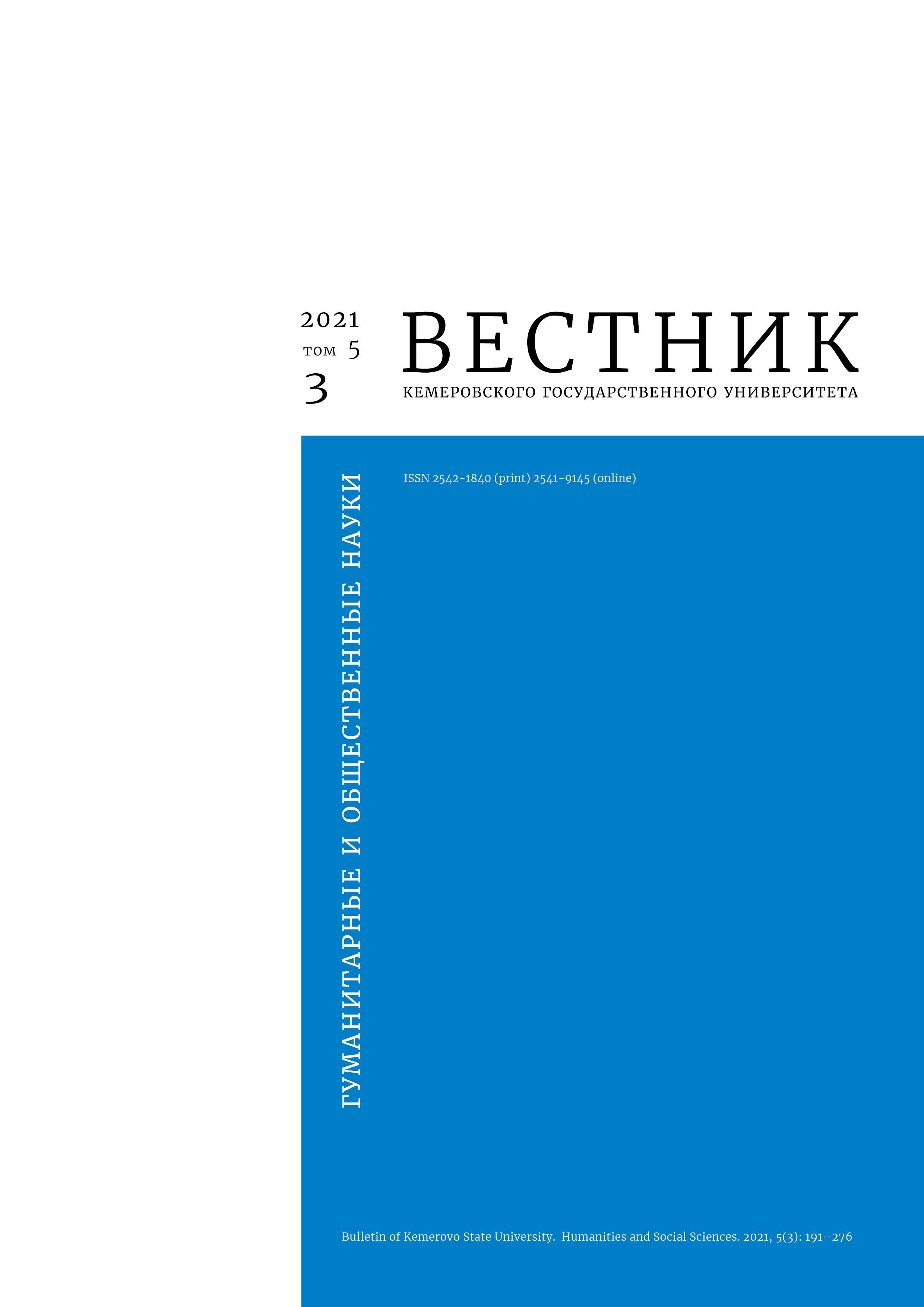Kemerovo, Russian Federation
Kemerovo, Russian Federation
Hybrid learning combines face-to face and online learning, which makes it highly relevant for the current pandemic situation. As a result of global migration, Kemerovo State University welcomes more and more international students each year, hence the need for pedagogical interaction research in cultural dialogue and intercultural communication. The article describes the organizational component of this interaction, which includes a set of methods and technologies that ensure cooperation of all subjects of pedagogical interaction. The authors tested various digital tools of teaching English for Specific Purposes (ESP) and hybrid learning methods in multinational groups of university students. Digital tools allowed students to master basic language and computer skills, as well as increased their motivation and involvement. Interactive teaching materials and automated testing improved the process of hybrid learning in groups where students studied both in classroom and from home. The technologies also helped to establish emotional contact, improved cooperation and creativity, and developed tolerance and teamwork.
international students, foreign language, online learning, digital educational tools, modern technologies
1. Greenwald O., Resenchuk A., Sergeychick T. Support of the international students studying earth sciences at mining region university. E3S Web of Conferences, 2019, 105. https://doi.org/10.1051/e3sconf/201910504019
2. Bermus A. G. The current problems of the development of a national system of lifelong teacher education. Education in a changing society: a new look at theory and practice: Proc. Intern. Sci.-Method. Conf., Pskov, 29-30 Apr 2021. Pskov: PskovGU, 2021, pt. 2, 89-94. (In Russ.)
3. Namood-E-Sahar. COVID-19 pandemic and hybrid learning system. EDUCCON Empower Teaching, 12 Dec 2020, 201-206.
4. Handbook of blended learning: Global Perspectives, local designs, eds. Bonk C. J., Graham C. R. San Francisco, CA: Pfeiffer Publishing, 2006, 624.
5. Gryaznov S. A. Teaching technologies: hybrid learning. Education and pedagogy: development prospects: Proc. All-Russian Sci.-Prac. Conf., Cheboksary, 16 Oct 2020. Cheboksary: Sreda, 2020, 18-20. (In Russ.)
6. Hybrid learning and education: Proc. 2nd Intern. Conf., ICHL 2009, Macau, China, 25-27 Aug 2009, eds. Wang F. L., Fong J. S. P., Zhang L., Lee V. K. S. Macau, 2009, XIV+434. https://doi.org/10.1007/978-3-642-03697-2
7. Qi L., Tian A. Design and application of hybrid learning platform based on Joomla. Advances in Computer Science and Education Applications, eds. Zhou M., Tan H. Springer, Berlin, Heidelberg, 2011, vol. 202, 549-556. https://doi.org/10.1007/978-3-642-22456-0_79
8. Beatty B. Transitioning to an online world: Using HyFlex courses to bridge the gap. EdMedia+Innovate Learning: Proc. of world conf. on educational multimedia, hypermedia, and telecommunications, eds. Mongomerie C., Seale J. Chesapeake, VA: AACE, 2007, 2701-2706.
9. Abdelmalak M. M. M., Parra J. L. Expanding learning opportunities for graduate students with HyFlex course design. International Journal of Online Pedagogy and Course Design, 2016, 6(4): 19-37. https://doi.org/10.4018/IJOPCD.2016100102
10. Miller J. B., Risser M. D., Griffiths R. P. Student choice, instructor flexibility: Moving beyond the blended instructional model. Issues and Trends in Educational Technology, 2013, 1(1): 8-23. https://doi.org/10.2458/azu_itet_v1i1_16464
11. Arnab S. Game science in hybrid learning spaces. UK: Routledge Taylor & Francis Group, 2020, 244.
12. Kruglyakova G. V. Information and communication competence of linguistic students as a component of their professional competence. Quality of contemporary liberal arts education: Proc. XVII Intern. Sci.-Method. Conf., Tolyatti, 17-18 Oct 2019. Samara: Samarskaia gumanitarnaia akademiia, 2020, 103-105. (In Russ.)
13. Voytovich I. K. Hybrid learning in foreign languages teaching at the university. Herald of Vyatka State Humanitarian University, 2013, (2-3): 76-79. (In Russ.)
14. Ivanova T. S., Shustova A. V. On the problems of organizing English language lessons in hybrid and distant learning environment in institutions of higher education. Mir pedagogiki i psikhologii, 2021, (4): 32-38. (In Russ.)
15. Singaravelu G. Hybrid learning in enhancing in communicative skill in English. Journal of Education Technology, 2021, 7(1): 14-18.
16. Kizilova A. S., Fadeyev G. N., Volkov A. A. Hybrid education: the estimation in the categories of information-axiological approach. Vestnik of Minin University, 2018, 6(1). (In Russ.) https://doi.org/10.26795/2307-1281-2018-6-1-1
17. Shirokolobova A. G., Larionova U. S. Change of educational paradigm due to e-learning technologies implementation in higher education. Pedagogy. Theory & Practice, 2021, 6(3): 357-362. (In Russ.) https://doi.org/10.30853/ped210020
18. Islamov R., Greenwald O., Tunyova N. Mobile applications in mastering mining engineers' competences. E3S Web of Conferences, 2018, 41. https://doi.org/10.1051/e3sconf/20184104041
19. DeGani A., Martin G., Stead G., Wade F. E-learning Standards for an M-learning world-informing the development of e-learning standards for the mobile web. Research in Learning Technologies, 2010, 25(3): 181-185.
20. Nicol D., Macfarlane-Dick D. Formative assessment and self-regulated learning: a model and seven principles of good feedback practice. Studies in Higher Education, 2006, 31(2): 199-218.
21. Talmo T., Sivertsen Korpås G., Mellingsæter M., Einum E. Experiences with use of new digital learning environments to increase academic and social competence. ICERI2012 Proceedings: Proc. of the 5th Intern. Conf. of Education, Research and Innovation, Madrid, Spain, 19-21 Nov 2012. Madrid: IATED, 2012, 4540-4545.
22. Cook J. Mobile phones as mediating tools within augmented contexts for development. International Journal of Mobile and Blended Learning, 2010, 2(3). https://doi.org/10.4018/jmbl.2010070101
23. Driver P. Pervasive games and mobile technologies for embodied language learning. International Journal of Computer-Assisted Language Learning and Teaching, 2012, 2(4): 50-63.


















